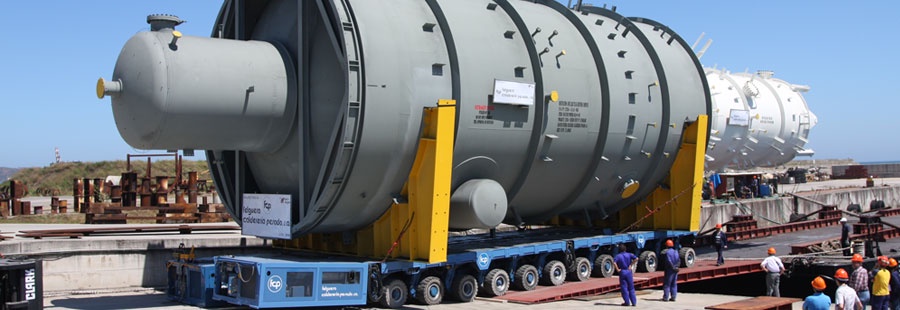Freight forwarding is a crucial aspect of global logistics, facilitating the movement of goods from one point to another efficiently and cost-effectively. Within the realm of freight forwarding, there are distinct approaches tailored to different types of shipments. One such approach is project freight, which differs significantly from traditional freight forwarding methods. In this article, we will explore the key differences between project freight forwarding and traditional freight forwarding and how they impact the transportation of goods.
Understanding Project Freight Forwarding:
Project freight forwarding involves the transportation of oversized, heavy, or high-value goods that require specialized handling and logistics expertise. Unlike standard shipments, which typically consist of smaller, standardized cargo, project cargo often presents unique challenges due to its size, weight, dimensions, and complexity. Project freight forwarding focuses on managing these challenges effectively, coordinating various aspects of transportation, and ensuring the safe and timely delivery of project cargo to its destination.
Differentiating Factors:
Several key differences distinguish Project Freight Forwarders from traditional freight forwarders:
Cargo Characteristics:
Project Freight Forwarding: Project cargo is characterized by its non-standard dimensions, weight, and shape. This may include machinery, equipment, components, or structures for large-scale construction, infrastructure, or industrial projects. Traditional Freight Forwarding: Traditional freight forwarding typically involves the transportation of standardized cargo, such as palletized goods, containers, or parcels, which adhere to standard size and weight specifications.
Specialized Handling:
Project Freight Forwarding: Project cargo often requires specialized handling techniques, equipment, and packaging to ensure its safe transportation. This may include heavy lifting equipment, cranes, flat racks, open-top containers, or custom-designed transport solutions. Traditional Freight Forwarding: Standardized cargo can typically be handled using conventional methods and equipment, such as forklifts, pallet jacks, and standard containers, with minimal specialized handling requirements.
Planning and Coordination:
Project Freight Forwarding: Project freight forwarding involves meticulous planning and coordination to manage the complexities of transporting oversized or heavy cargo. This includes route planning, cargo securing, obtaining permits and clearances, coordinating with multiple stakeholders, and managing logistics operations from start to finish. Traditional Freight Forwarding: Traditional freight forwarding also requires planning and coordination but is generally more straightforward, as it involves the transportation of standardized cargo with established routes, schedules, and procedures.
Risk Management:
Project Freight Forwarding: Due to the unique challenges associated with project cargo, project freight forwarders must employ robust risk management strategies to mitigate potential risks and ensure the successful delivery of cargo. This may include assessing route feasibility, addressing regulatory requirements, managing customs clearance, and implementing contingency plans for unforeseen circumstances. Traditional Freight Forwarding: While risk management is essential in traditional freight forwarding, the risks associated with transporting standardized cargo are often more predictable and manageable compared to project cargo.
Expertise and Experience:
Project Freight Forwarding: Project freight forwarders possess specialized expertise and experience in handling complex logistics challenges associated with project cargo. They understand the intricacies of project logistics, have knowledge of industry-specific regulations and requirements, and have established networks of partners and suppliers to support project cargo transportatioTraditional Freight Forwarding: Traditional freight forwarders may not have the same level of expertise or experience in handling project cargo, as their focus is primarily on managing standard shipments using established procedures and networks.
Final Thoughts:
Project freight forwarding represents a specialized approach to managing the transportation of oversized, heavy, or high-value cargo for large-scale projects. The key differences between project freight forwarding and traditional freight forwarding lie in the nature of the cargo, specialized handling requirements, planning and coordination efforts, risk management strategies, and expertise and experience required. By understanding these differences, shippers can make informed decisions when selecting a freight forwarding partner to meet their specific transportation needs, whether for standard shipments or complex project cargo.


No comments yet